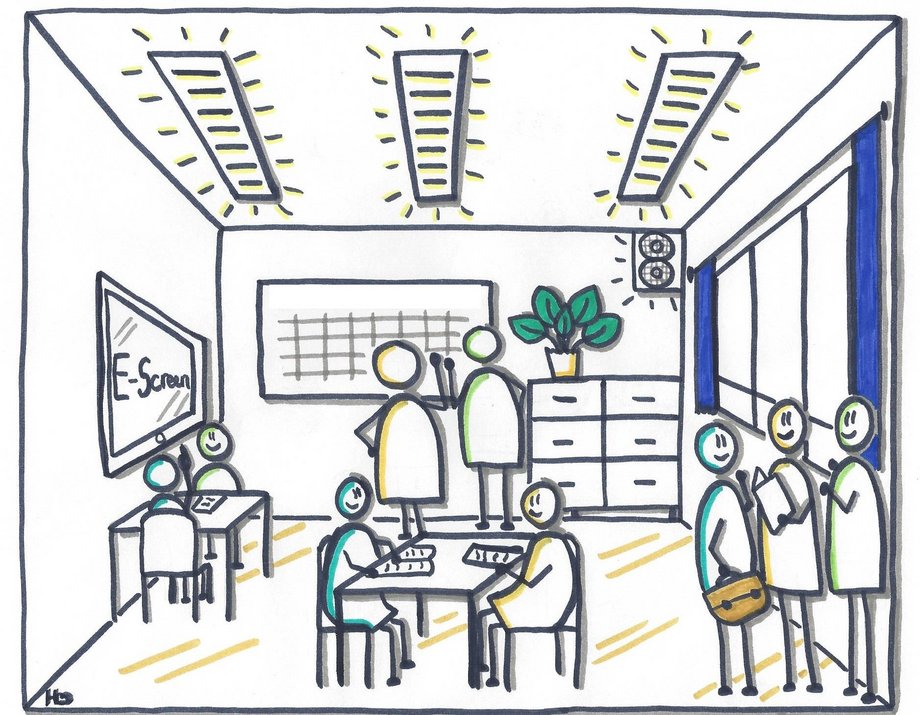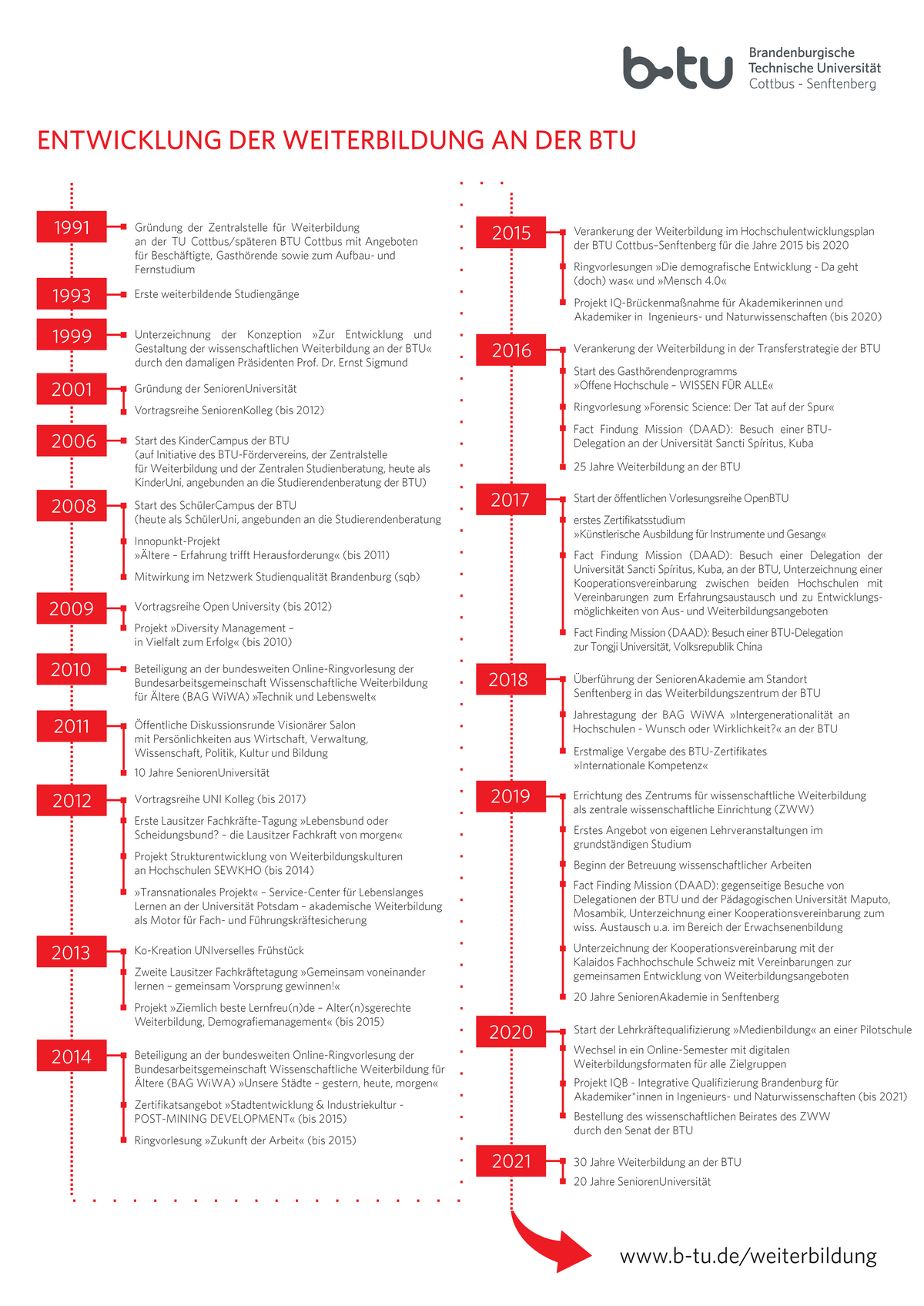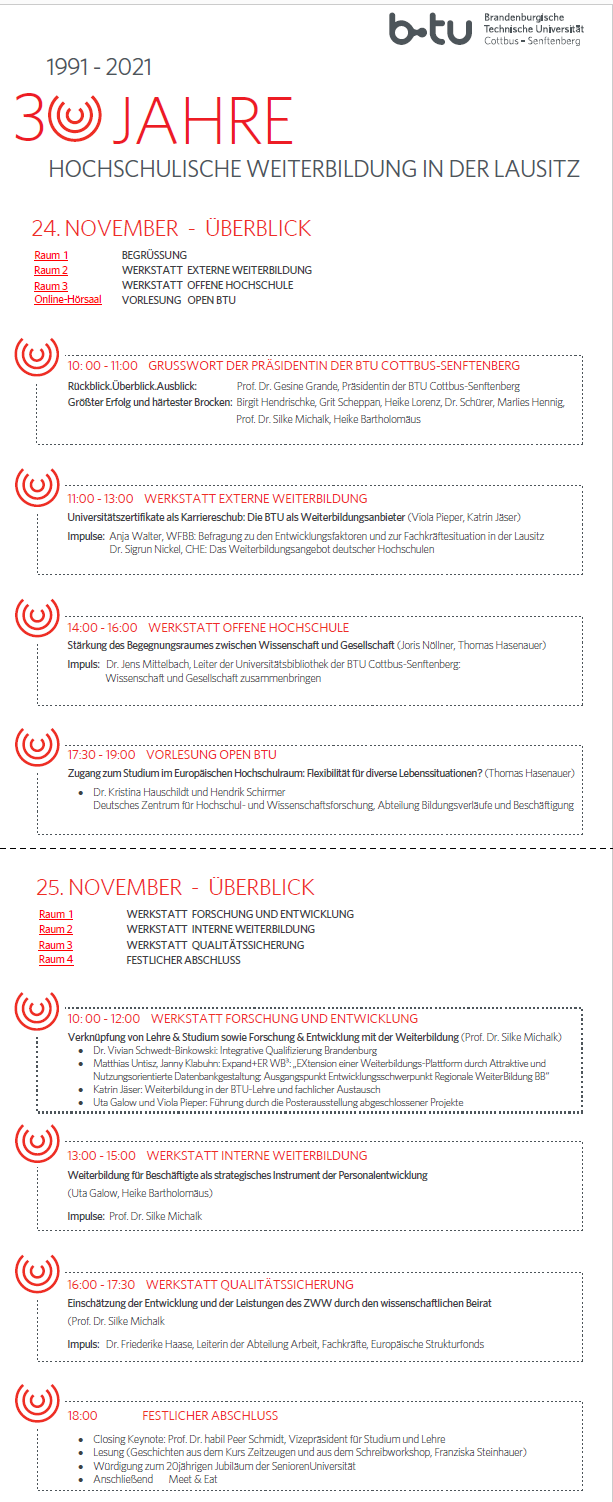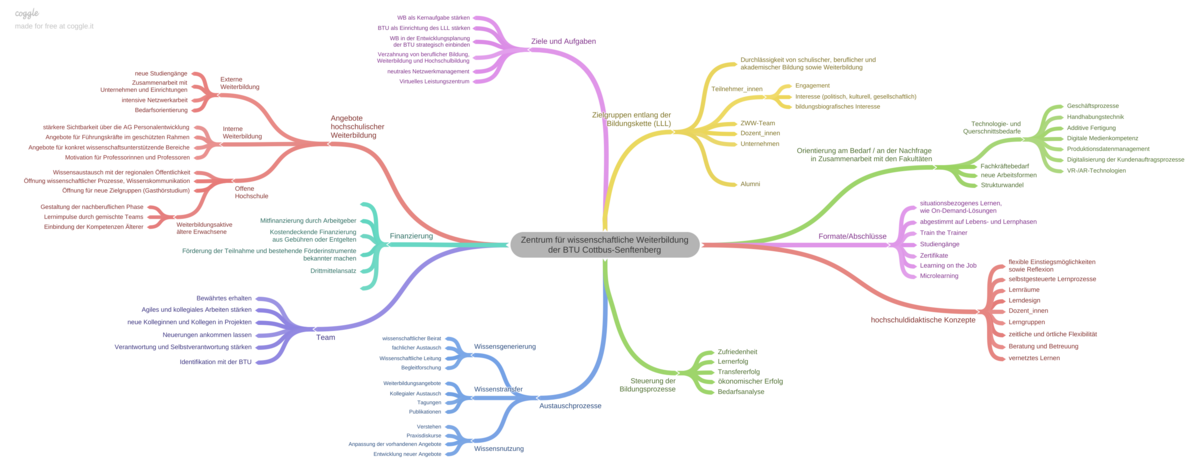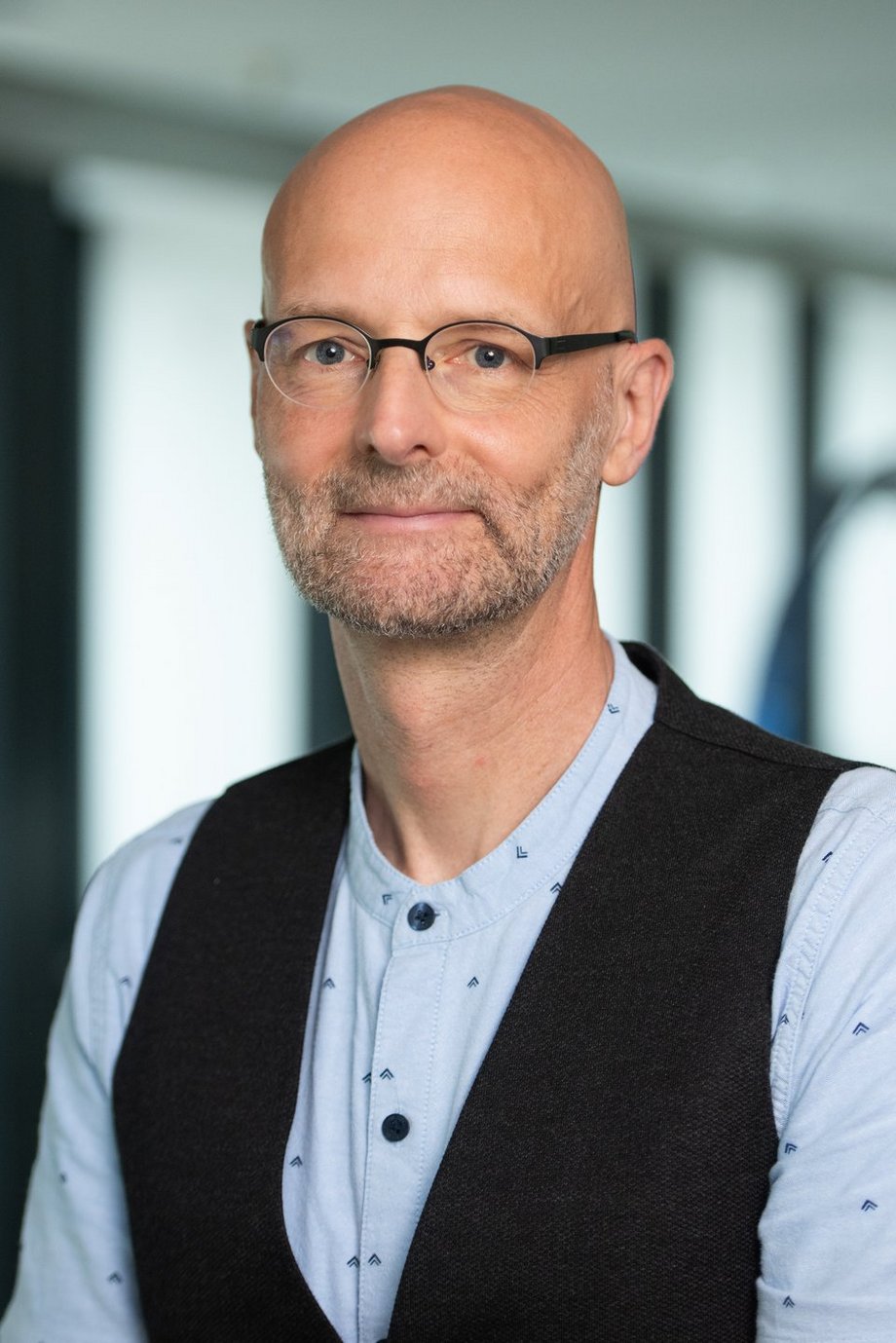
30 years of experience in continuing education Online workshops: Education and further Lifelong learning creates prospects
For 30 years, continuing education has been institutionalized at BTU Cottbus-Senftenberg and its predecessor universities. This treasure of experience is to be raised and further expanded.
On November 24 and 25, 2021, we were able to discuss the following in various workshops
- discuss what has been achieved and reflect on the experiences made,
- to shed light on the importance of continuing education for personal careers and
- work on new ideas, visions and further development steps.
People interested in continuing education, participants and lecturers in our training programs, and experts were invited to join us in an exchange of ideas.
with Prof.in Dr. Silke Michalk
and Heike Bartholomäus
November 24, 2021
- Review.Overview.Outlook : Prof. Dr. Gesine Grande, President of BTU Cottbus-Senftenberg
- Greatest success and toughest challenge: Birgit Hendrischke, Grit Scheppan, Heike Lorenz, Dr. Schürer, Marlies Hennig, Prof. Dr. Silke Michalk, Heike Bartholomäus.
- Overview of the workshops
University Certificates as a Career Booster: The BTU as a Provider of Continuing Education
Viola Pieper, Katrin Jäser
Universities increasingly see education as a lifelong process that accompanies the student's biography. In addition to university studies, individualized qualification offers in the field of academic continuing education provide further access routes to higher education. At BTU Cottbus-Senftenberg, too, the permeability between the educational paths within the framework of lifelong learning is being improved by means of demand-oriented study programs, including continuing education, and transition management between vocational and higher education. The session will show the concrete steps BTU's continuing education is taking to implement the requirement of permeability for individual lifelong learning, how it is responding to the differentiation and overlap of educational subsystems, and how this is funding educational participation.
Impetus:
- Anja Walter, WFBB: Results of the survey on development factors and the skilled labor situation in Lusatia.
- Dr. Sigrun Nickel, CHE: The range of continuing education offered by German universities
Strengthening the meeting space between science and society
Joris Nöllner, Thomas Hasenauer
The Open University - KNOWLEDGE FOR ALL program manages to bring people together in different meeting spaces through its offerings in diverse educational formats.
Enabling research activities in our visiting students program is a vision we want to pursue together with our visiting students. For 20 years now, our project groups have been working across semesters on various topics and developing new ideas. A consistent next step is to address scientific issues and provide scientific support. Discover "inquiry-based learning" with us, contribute your competencies to research projects and participate in public and scientific discourse.
Impetus: Dr. Jens Mittelbach, Head of the University Library at BTU Cottbus-Senftenberg: Bringing Science and Society Together
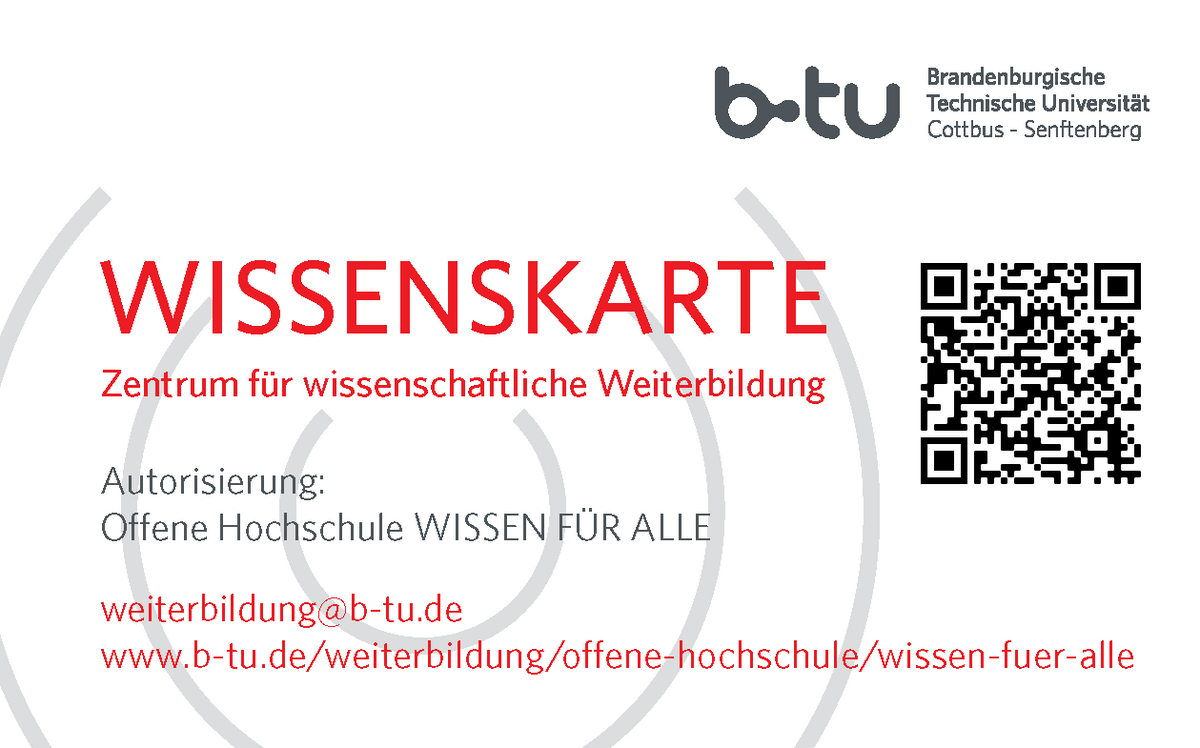
November 25 2021
Linking teaching and studies as well as research and development with the field of continuing education
Prof. Dr. Silke Michalk, Katrin Jäser, Dr. Vivian Schwedt-Binkowski
The research and development area has been significantly strengthened. This includes needs surveys and consequently the corresponding orientation of internal and external continuing education programs, the evaluation of offerings and surveys, among other things, against the background of the successful transfer of what has been learned into practice or the meaningful use of digital or digitally enriched qualification offerings. Current research aspects in the field of continuing education and adult education include teaching and learning with digital media, conditions for the successful transfer of knowledge from the university to practice and vice versa, and science management.
Within the framework of externally funded projects, the ZWW deals with the further development of continuing education in science, in particular with the possibilities of opening the university to new target groups, the architecture of qualification programs, personnel development and competence management.
- Dr. Vivian Schwedt-Binkowski: Integrative Qualification Brandenburg
- Matthias Untisz, Janny Klabuhn: Project Expand+ER WB³: "EXtension of a further education platform through attractive and user-oriented database design: Starting point for development focus Regional Further Education Berlin-Brandenburg".
- Katrin Jäser: Further education in BTU teaching and professional exchange
- Uta Galow and Viola Pieper: Guided tour through the poster exhibition of completed projects
BTU-internal continuing education as a strategic instrument of personnel development
Uta Galow, Heike Bartholomäus
Highly qualified personnel are a factor in the success of the BTU. In this context, continuing education events fund professional and personal development, serve interdisciplinary and cross-departmental exchange and networking, as well as BTU-wide knowledge management. To this end, the BTU's continuing education program offers qualification measures that are relevant to current work tasks (maintenance qualification) or continuing education and training for changed, new activities or after a longer period of absence.
In the future, this demand-oriented offering is to develop into a systematic qualification plan for both individuals and teams.
Impulse: Prof. Dr. Silke Michalk
Assessment of the development and performance of the ZWW by the Scientific Advisory Board.
Prof. Dr. Silke Michalk
At the ZWW, quality assurance of scientific concepts and work results is of utmost importance. It takes place on three levels: through internal measures of the center itself, through the advice and evaluation of the scientific advisory board and in the context of reporting to the Senate by the scientific director of the ZWW.
The ZWW owes a special debt of gratitude to all Advisory Board members. Since 2020, the members have contributed significantly to quality assurance and further development through their tireless support. In order to further strengthen the framework conditions, the continuing education statutes are being discussed and finalized.
Impulse: Dr. Friederike Haase, Head of the Department of Labor, Skilled Workers, European Structural Funds

